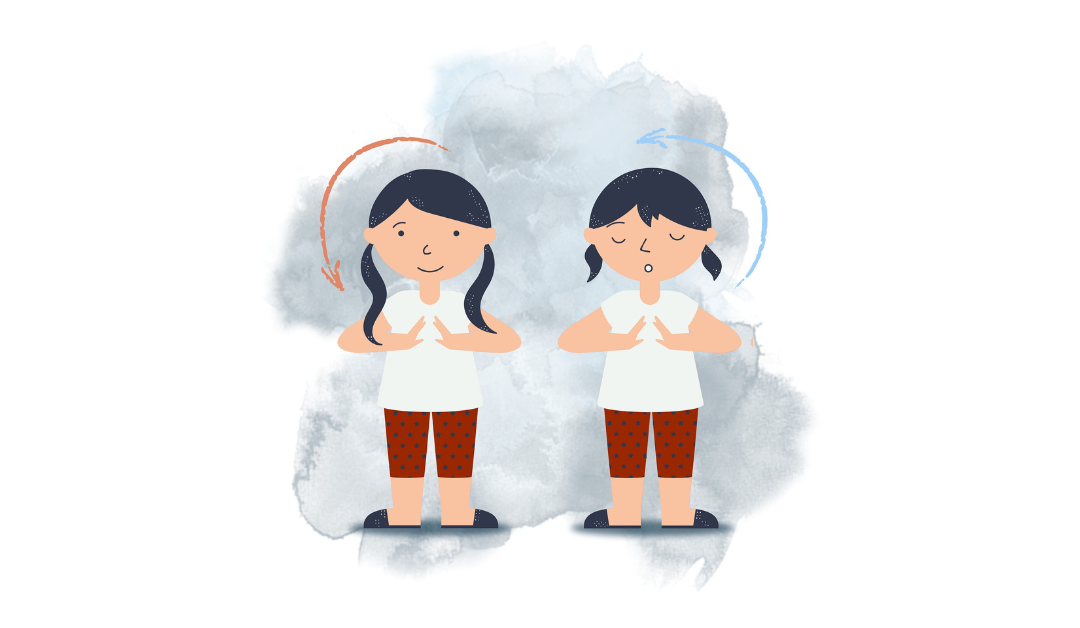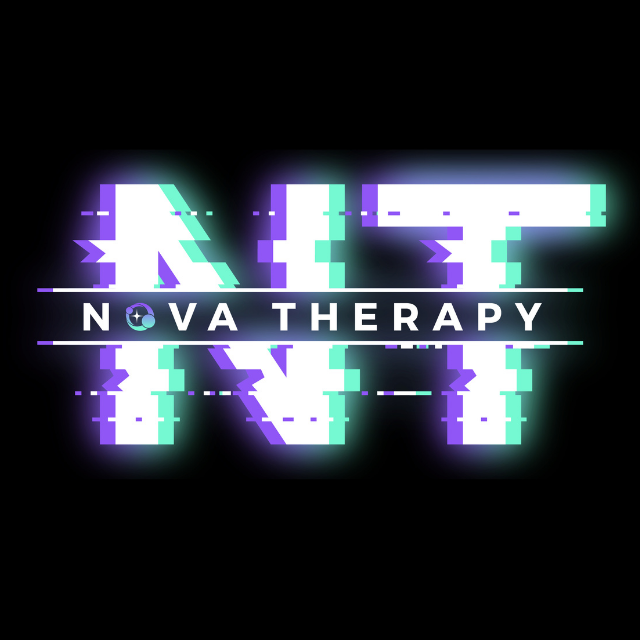
by Calien Trevino | Aug 8, 2024 | Anxiety, General, Trauma- and Stressor-Related Disorders
Life’s hectic, right? Between juggling work, social life, and trying to squeeze in some self-care (hello, face masks and binge-watching), it’s easy to feel overwhelmed. But what if I told you there’s a super simple, totally free way to calm your mind and body in just a few minutes? Enter the 444 Box Breathing technique—your new BFF for stress relief.
So, What Exactly Is 444 Box Breathing?
It’s as simple as it sounds. The “444” stands for four counts in each step: inhale, hold, exhale, and then hold again. You do each for four seconds, and voilà—you’ve completed a cycle. Repeat this a few times, and you’ll start feeling like you’ve just finished a mini-meditation session.
Here’s how you do it:
- Inhale slowly through your nose for 4 seconds.
- Hold your breath for 4 seconds.
- Exhale slowly through your mouth for 4 seconds.
- Hold your breath again for 4 seconds.
That’s it. Seriously. So easy, you can do it anywhere—at your desk, in the car, or even during that awkward small talk at the grocery store.
Why It’s a Game-Changer
- Bye-Bye Stress
Ever notice how your breath speeds up when you’re stressed? The 444 Box Breathing technique helps you slow everything down. It tells your body, “Hey, chill out, we got this.” As you focus on your breathing, your heart rate drops, and your mind starts to clear up. It’s like pressing the reset button on a frazzled brain.
- Improves Focus
Whether you’re grinding through a tough work project or trying to nail that tricky yoga pose, this breathing technique can sharpen your focus. By practicing this regularly, you train your brain to stay calm and collected, which means less distraction and more productivity.
- Boosts Mood
Deep breathing isn’t just about calming down—it also helps lift your spirits. The increase in oxygen flow to your brain can make you feel more alert and positive. So next time you’re feeling a bit blah, try a round of 444 and notice the mood shift.
- Better Sleep
Struggling to fall asleep? (We’ve all been there, staring at the ceiling, replaying awkward conversations from 2010.) The 444 Box Breathing technique can help lull you into a more relaxed state, making it easier to drift off into dreamland.
How to Fit It into Your Day
Here’s the best part—you don’t need a fancy setup or a lot of time to practice this. Sneak it in wherever you can:
- Morning Routine: Start your day with a clear mind.
- Midday Break: Use it to recharge during lunch.
- Before Bed: Unwind and prepare for a restful night.
If you’re someone who needs a bit of structure, try setting a reminder on your phone or pairing it with another habit (like your morning coffee or evening skincare routine). The more you do it, the more natural it will feel.
The Takeaway
Life throws a lot at us, but with the 444 Box Breathing technique, you’ve got a simple tool to help you navigate it all. It’s quick, easy, and can make a real difference in how you handle stress, stay focused, and feel overall. So next time you’re feeling overwhelmed, remember: just breathe, 4-4-4, and let the calm take over.
Got a few minutes? Why not give it a try right now? You might be surprised at how good it feels. Feel free to check out Cat demonstrate the 444 breathing technique on our Nova Therapy: Nova Talk Podcast here: https://podcasters.spotify.com/pod/show/novatherapytx

by Calien Trevino | Jul 1, 2024 | Anxiety, Eating Disorder, General
Hey there, virtual pals! 🌐 Let’s talk about something that’s as common as our morning coffee and as addictive as that last episode of your favorite Netflix series: social media. From Instagram to TikTok, Facebook to Twitter (or should we say X?), social media platforms are a huge part of our daily lives. But how does this constant connectivity impact our mental health? Let’s dive in!
The Good: Connection and Community
Let’s start on a positive note. Social media can be a beautiful thing. It allows us to stay in touch with friends and family across the globe, find like-minded communities, and even learn new skills. Need a recipe for tonight’s dinner? Check Pinterest. Want to keep up with your high school buddies? Facebook’s got you covered. Feeling a bit low and need some cute dog videos to cheer you up? Hello, Instagram Explore page!
These platforms can offer a sense of connection and belonging, which is crucial for our mental well-being. They can be particularly beneficial for those who might feel isolated in their offline lives. Social media can provide a lifeline, a way to reach out and say, “Hey, I’m here, and I need to talk.”
The Bad: The Comparison Trap
But, like all good things, there’s a flip side. Ever found yourself scrolling through Instagram, only to feel a pang of envy at someone’s seemingly perfect life? Welcome to the comparison trap, my friend. Social media can create an illusion of perfection that’s hard to live up to. Those filtered, curated snapshots of people’s lives can make us feel like we’re not enough, that our lives are boring in comparison.
This can lead to feelings of inadequacy, low self-esteem, and even depression. It’s easy to forget that what we see online is often a highlight reel, not the full story. That influencer with the perfect skin? They have bad days too. That couple always posting cute pictures? They probably argue sometimes.
The Ugly: Anxiety and Addiction
Then there’s the anxiety that comes with social media use. Ever heard of FOMO (Fear of Missing Out)? It’s real, and it’s pervasive. Seeing friends hang out without you, witnessing events you weren’t invited to, or simply feeling like you need to keep up with the latest trends can all contribute to anxiety.
And let’s not forget the addiction aspect. Social media platforms are designed to keep you hooked, with endless scrolling, notifications, and the dopamine hit from likes and comments. This can lead to a never-ending cycle of checking, refreshing, and seeking validation from our online presence, often at the expense of our real-world interactions and mental peace.
Finding Balance: The Middle Path
So, what’s the takeaway here? Social media isn’t inherently good or bad—it’s all about how we use it. Here are some tips to maintain a healthy relationship with your screens:
- Limit Your Time: Set daily limits on your social media use. Most smartphones now have built-in tools to help with this.
- Curate Your Feed: Follow accounts that make you feel good and unfollow those that don’t. It’s your feed, after all.
- Be Mindful: Pay attention to how you feel during and after using social media. If it’s making you anxious or unhappy, it might be time for a break.
- Engage Meaningfully: Use social media to connect with others, not just to consume content passively. Engage in conversations, share your thoughts, and be real.
- Disconnect to Reconnect: Take regular breaks from social media to engage with the world around you. It can be refreshing to experience life without the filter.
In conclusion, social media is a double-edged sword. It can bring us closer to people, provide us with a sense of community, and be a source of entertainment and information. But it can also lead to comparison, anxiety, and addiction if we’re not careful. By being mindful of our usage and setting healthy boundaries, we can enjoy the benefits while minimizing the drawbacks.
So, next time you’re scrolling through your feed, remember: it’s not all real, and it’s okay to take a step back. Your mental health will thank you. 🌸
Want some good vibes and mental health tips? Follow us on social media for all the positivity you need (this is the good side of social media 🫶🏻)!
Instagram: https://www.instagram.com/novatherapy_tx/
TikTok: https://www.tiktok.com/@novatherapytx

by Calien Trevino | Jun 27, 2024 | Anxiety, General
Hey there, fabulous readers!
Let’s chat about something super heartwarming today: emotional support animals (ESAs). Whether you’re already a proud pet parent or thinking about becoming one, you’ll love learning about the amazing impact these furry (or feathered, or scaly) buddies can have on our lives.
What’s the Deal with Emotional Support Animals?
First up, what exactly is an ESA? Unlike service animals that are trained to do specific tasks for people with disabilities, emotional support animals provide comfort just by being their adorable selves. They don’t need any special training, but their presence can be a game-changer for folks dealing with mental health issues like anxiety, depression, PTSD, and more.
The Comfort of Companionship
One of the best perks of having an ESA is the pure comfort they bring. Picture this: you’ve had a tough day, and you walk through the door to be greeted by a wagging tail or a soft purr. That simple act of love can seriously lift your spirits. Studies show that hanging out with animals can boost oxytocin, aka the “love hormone,” making you feel happier and more connected.
Bye-Bye Anxiety and Depression
Living with an ESA can work wonders for anxiety and depression. These animals offer constant, positive companionship that’s totally non-judgmental. Their presence can help ground you during panic attacks or moments of intense stress. Many ESA owners say they feel calmer and more secure with their furry friend by their side, leading to fewer anxiety episodes and a more stable mood.
Routine and Responsibility
Taking care of an ESA gives you a sense of routine and responsibility. Feeding, walking, grooming, and playing with an animal require daily attention, which can be super beneficial if you’re struggling with depression. This sense of purpose and routine can help you feel more organized and motivated, adding a bit of structure to your day.
Social Butterfly Moments
Having an ESA can also boost your social life. Walking your dog can lead to chats with other pet owners or neighbors. These small interactions can help you feel less isolated and more connected, fostering a sense of community and belonging.
Health Perks Galore
Don’t forget the physical health benefits! Owning a dog, for example, encourages regular exercise. Those daily walks aren’t just good for your pup; they’re good for you too! Regular physical activity can improve your heart health, boost your mood, and increase your energy levels.
Unconditional Love FTW
The unconditional love of an ESA can provide emotional stability. Knowing you have a loyal friend who loves you no matter what can be incredibly reassuring. This stable source of affection can help you navigate life’s ups and downs with more confidence and resilience.
Final Thoughts
Emotional support animals are more than just pets; they’re loyal companions offering unwavering support and love. Whether you’re dealing with mental health challenges or simply looking for a comforting presence, an ESA can make a world of difference.
So, to all the ESA owners out there, give your furry (or not-so-furry) friend an extra treat today. And if you’re thinking about getting an ESA, know that the bond you’ll share with your new buddy will be incredibly rewarding.
Stay pawsitive and take care!

by Calien Trevino | Jun 26, 2024 | Anxiety, Personality Disorders
Hey there, pals! 🌟
Navigating the rollercoaster of emotions in today’s fast-paced world can be overwhelming. Whether you’re juggling careers, relationships, or just trying to keep up with the latest TikTok trends, it’s easy to feel like you’re constantly running on empty. Enter Dialectical Behavior Therapy (DBT) – a game-changer in the world of mental health. Let’s dive into why DBT might just be the toolkit you never knew you needed.
What is DBT?
First things first, what exactly is DBT? Developed by psychologist Marsha Linehan, DBT is a type of cognitive-behavioral therapy designed to help individuals manage intense emotions and build healthier relationships. It’s particularly effective for those struggling with mood disorders, self-harm, and suicidal ideation, but its benefits extend far beyond these areas.
1. Emotional Regulation: Master Your Feelings
Are you often dubbed “anxious?” Between student loans, career pressures, and social media comparisons, it’s no wonder our stress levels are through the roof. DBT teaches you how to regulate your emotions effectively. Through skills like mindfulness and distress tolerance, you learn to identify, understand, and manage your feelings without letting them take over your life.
2. Mindfulness: Stay Present in the Moment
In a world full of distractions, staying present can be a real challenge. DBT incorporates mindfulness techniques that help you focus on the here and now. By practicing mindfulness, you can reduce anxiety, improve concentration, and enhance your overall well-being. Plus, it’s a great way to take a break from the constant digital bombardment we face daily.
3. Interpersonal Effectiveness: Build Stronger Relationships
Healthy relationships are crucial for our mental health, yet they can be incredibly challenging to maintain. DBT provides practical tools for improving communication, setting boundaries, and resolving conflicts. Whether it’s with a partner, family member, or friend, these skills can help you build and sustain meaningful connections.
4. Distress Tolerance: Weather the Storms
Life is unpredictable, and sometimes, things don’t go as planned. DBT’s distress tolerance skills equip you with strategies to cope with crises without resorting to harmful behaviors. By learning how to tolerate and survive distressing situations, you become more resilient and better prepared to handle whatever life throws your way.
5. Self-Compassion: Be Kind to Yourself
In the age of social media, it’s easy to fall into the trap of self-criticism and comparison. DBT encourages self-compassion, teaching you to treat yourself with the same kindness and understanding that you would offer a friend. This shift in mindset can lead to improved self-esteem and a more positive outlook on life.
6. Empowerment: Take Control of Your Life
Ultimately, DBT is about empowerment. It gives you the tools and skills to take control of your mental health and well-being. By actively participating in your therapy and applying what you learn, you can make meaningful changes in your life and become the best version of yourself.
Ready to Give DBT a Try?
If you’re intrigued by the benefits of DBT and think it might be a good fit for you, consider reaching out to a mental health professional trained in DBT. Our therapists offer DBT-based group sessions, individual therapy, and online resources to help you get started.
Remember, seeking help is a sign of strength, not weakness. Embrace the journey to emotional well-being with DBT – because you deserve to live a life that feels good on the inside, not just one that looks good on the outside. 🌱✨
Stay mindful, stay present, and most importantly, be kind to yourself.

by Calien Trevino | Jun 25, 2024 | Anxiety, General
Hey there, lovebirds! 🌟 Whether you’re in the honeymoon phase or have been together for years, relationships can be challenging. The good news? Couples therapy is here to save the day! Let’s dive into why this modern relationship tool is gaining popularity and why it might just be the best thing for your love life.
1. Break the Stigma: It’s Okay to Ask for Help!
First things first: seeking couples therapy doesn’t mean your relationship is doomed. In fact, it shows you care enough to invest in your partnership. For too long, therapy has been seen as a last resort. But let’s flip that script! It’s actually a proactive step towards a healthier, happier relationship. Think of it like going to the gym for your love life. 💪
2. Better Communication: Say Goodbye to Misunderstandings
Communication is key, but it’s easier said than done. Couples therapy teaches you and your partner how to communicate effectively. Instead of bottling up feelings or having the same argument over and over, you’ll learn techniques to express yourselves clearly and listen actively. No more “You never listen to me!” or “I didn’t mean it like that!” moments. 🗣️
3. Strengthen Your Bond: Rekindle That Spark
Over time, the daily grind can dull the shine of even the brightest relationships. Couples therapy can help you rediscover what brought you together in the first place. Through guided sessions, you’ll find new ways to connect and rekindle that spark. Whether it’s through shared activities or deeper emotional understanding, you’ll fall in love all over again. ✨
4. Address Issues Head-On: Don’t Let Problems Fester
Ignoring issues won’t make them disappear. Couples therapy provides a safe space to address concerns before they become major problems. Whether it’s finances, intimacy, or future plans, having a neutral third party can help you navigate these tricky waters. By tackling these issues head-on, you’ll build a stronger foundation for the future. 🌱
5. Learn Conflict Resolution Skills: Fight Fair, Love Hard
Every couple argues, but it’s how you handle those disagreements that counts. Couples therapy equips you with conflict resolution skills to ensure fights are productive rather than destructive. You’ll learn how to argue respectfully, find compromises, and most importantly, how to make up after a disagreement. ❤️🩹
6. Boost Emotional Intimacy: Get to Know Each Other Better
Beyond just talking, therapy helps you understand each other’s emotional needs and histories. This deeper understanding can lead to greater empathy and emotional intimacy. Knowing your partner’s triggers, dreams, and fears allows you to support each other more effectively. It’s about building a connection that goes beyond the surface. 🌊
7. Future-Proof Your Relationship: Plan for the Long Haul
Couples therapy isn’t just about solving current issues; it’s about preparing for the future. Discussing long-term goals, expectations, and potential challenges with a therapist can help you create a shared vision for your life together. This proactive approach ensures you’re both on the same page and ready to face whatever comes your way. 🚀
8. Self-Discovery: Understand Yourself Better
Sometimes, couples therapy isn’t just about your partner—it’s about you too. Through the process, you’ll gain insights into your own behavior, patterns, and emotions. This self-awareness can lead to personal growth that benefits not only your relationship but all areas of your life. 🌟
9. Normalize Relationship Maintenance: Just Like Car Service!
Just like your car needs regular maintenance to run smoothly, so does your relationship. Think of couples therapy as routine maintenance rather than emergency repair. Regular check-ins with a therapist can help you keep your relationship in top shape, preventing minor issues from becoming major breakdowns. 🚗💨
10. Empowerment: Take Control of Your Relationship
Ultimately, couples therapy empowers you to take control of your relationship. It’s about being active participants rather than passive passengers. By investing time and effort into therapy, you’re showing that your relationship is worth fighting for and that you’re committed to making it the best it can be. 🌈
So, there you have it! Couples therapy isn’t just for couples in crisis—it’s for anyone who wants to build a stronger, more fulfilling relationship. Ready to give it a try? Your future selves will thank you!

by Calien Trevino | Jun 24, 2024 | Anxiety, General, Trauma- and Stressor-Related Disorders
Life can be a wild ride, especially for those of us in the LGBTQIA+ community. From coming out to dealing with discrimination, the struggles are real and unique. Therapy can be a game-changer. Seeking professional help isn’t just okay; it’s a powerful step toward living your best life. Let’s break down why therapy is so beneficial for the LGBTQIA+ community and how it can help you lead a more fulfilling life.
Breaking Down Barriers
First things first: therapy helps break down barriers. Many of us face societal stigma and internalized shame. Therapy provides a safe space to explore these feelings without judgment. A supportive therapist can help you process your experiences and empower you to live authentically.
Figuring Out Your Identity
Understanding and embracing your identity can be a journey. Whether you’re exploring your sexuality or gender identity, therapy offers a supportive environment to navigate these waters. A therapist can provide guidance, resources, and a listening ear as you discover who you truly are. This process can lead to greater self-acceptance and confidence.
Dealing with Discrimination
Discrimination and prejudice are, unfortunately, part of the reality for many LGBTQIA+ individuals. Dealing with these experiences can be incredibly draining. Therapy offers tools and strategies to cope with discrimination and build resilience. It’s about finding strength in the face of adversity and not letting negative experiences define you.
Building Better Relationships
Our relationships often face unique challenges. Whether it’s family dynamics, friendships, or romantic relationships, therapy can help improve communication and understanding. It’s about building healthier connections and navigating conflicts in a constructive way. A therapist can also support you in creating a chosen family if your biological one isn’t supportive.
Mental Health Boost
Anxiety, depression, and other mental health issues can affect anyone, but the LGBTQIA+ community is often at higher risk. Therapy can address these challenges head-on. With the right support, you can develop coping mechanisms, work through trauma, and improve your overall mental health. Remember, it’s okay to ask for help and prioritize your well-being.
Getting Validated
Finding a therapist who understands and affirms your identity is crucial. An LGBTQIA+-friendly therapist can provide validation and support tailored to your unique experiences. They can help you navigate specific issues like coming out, transitioning, or dealing with societal pressures, making the therapy experience more relevant and impactful.
Personal Growth
Therapy isn’t just about tackling problems; it’s also a space for personal growth. It’s a journey toward becoming the best version of yourself. Whether it’s setting goals, building self-esteem, or finding your purpose, therapy can guide you along the way. Embrace the opportunity to grow and evolve in a supportive environment.
Finding Your Community
Therapy can also help you connect with the broader LGBTQIA+ community. Many therapists can recommend support groups, events, and resources that can help you build a network of supportive friends and allies. Being part of a community where you feel understood and accepted is invaluable.
Conclusion
Therapy is a powerful tool for anyone, but it’s especially beneficial for the LGBTQIA+ community. It provides a safe space to explore your identity, cope with discrimination, and improve your mental health. By seeking therapy, you’re taking a bold step toward a healthier, happier, and more authentic life. So why not give it a try? You deserve to live your best life, filled with self-acceptance, resilience, and love.
Page 4 of 6« First«...23456»

















